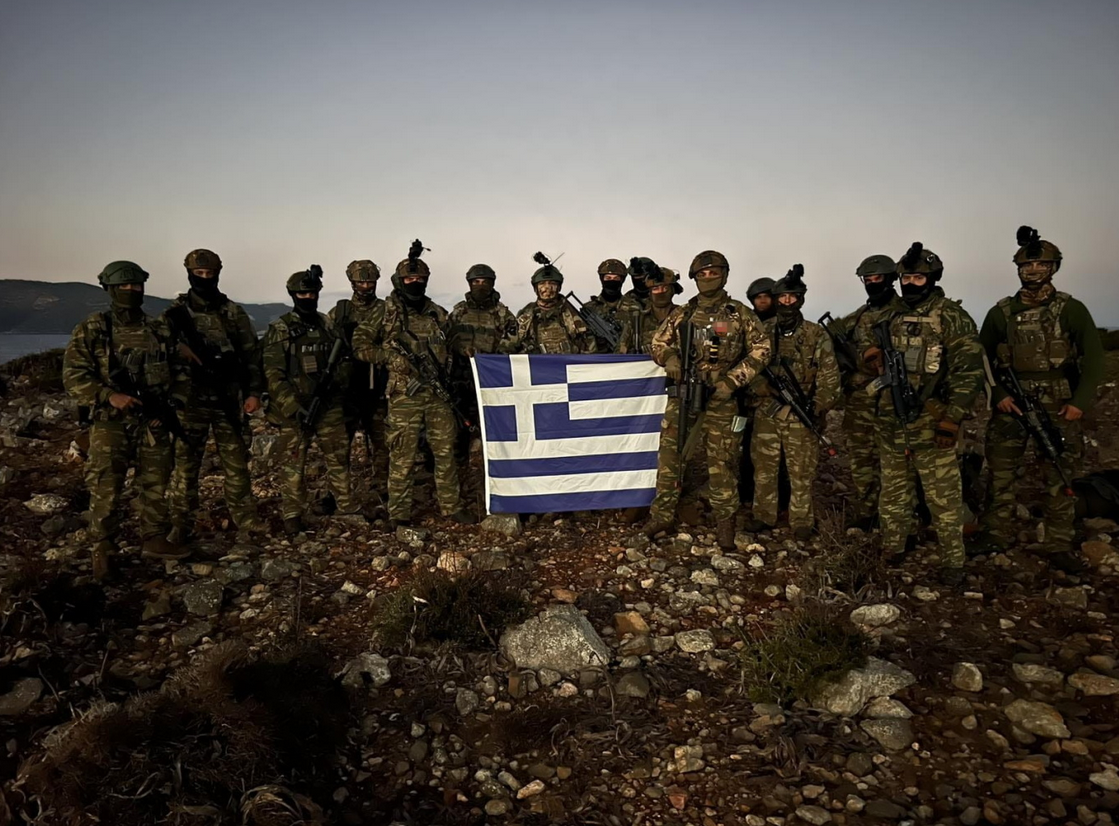Maria Callas: Her true father, the rape at 21 & the great love that wasn’t
Source: ProtoThema English
For decades, countless pages have been written about the legendary life of the greatest lyrical performer of all time — the Greek priestess of opera, Maria Callas. One might reasonably ask: “Is there really anything left we don’t know about her after so many books, tributes, and films?”
Yet, reading Andreas Bonnatos’s trilogy “Dark Diva: Stories of Global Betrayal”, published these days by Teuthis Editions, one realizes that there were indeed many well-hidden secrets that had never come to light — either because Callas chose to keep them so, or because others had serious reasons to suppress them.
Journalist Andreas G. Christodoulakis (Bonnatos’s real name) sheds light on these unknown aspects of the Greek diva’s life, revealing unseen moments of modern Greek and global history with which she became fatefully intertwined.
Powerful personalities, fame, success, love, passion, dreams, disappointment, pain, violence, betrayal, politics, money, secret services, murders, revenge — all are interwoven in the roughly 2,000 pages of the three volumes, which blend personal testimonies, factual events, and fictionalized narrative. “The book is not a strictly historical account, nor a journalistic report, but a mixture of myth and history. The painstaking collection and classification of these stories took about 14 years. The final result is a ‘chronicle of myth-history’, not a history book,” the author explains, noting that the stories were told by people who lived very close to Maria Callas and Aristotle Onassis — some under their real names, others under pseudonyms at their request.
Among them: “Advocate,” a composite fictional figure based on three real people close to Callas; Ioannis Georgakis, lawyer and confidant of Onassis; her dresser, Giovanna Lomatsi; Onassis’s loyal housekeeper, Georgia Veta; and his close associate, Pavlos Ioannidis.
The Servant Boy
Until now, we knew that Maria Callas’s father was pharmacist Georgios Kalogeropoulos. According to the revelations in the book, however, her biological father was a tall and handsome young man from mountainous Arcadia named Christos Trembelis (or Trembelas), who was Kalogeropoulos’s assistant in Meligalas, where he lived with his wife Litsa and their young daughter Hyacinth.
Kalogeropoulos, however, wanted a son. After many attempts, Litsa became pregnant again and, in 1920, gave birth to a boy named Vasilis. The couple seemed happy, but fate dealt them a cruel blow: in 1922, Vasilis died of meningitis. The loss tore them apart and made them hostile toward each other. Vasilis had been their first son — something highly important in a Greek family — and Georgios unfairly blamed Litsa for his death, even though at that time, before penicillin, meningitis and typhoid fever killed many children.
Litsa felt suffocated in the small-town society and couldn’t bear her husband’s indifference and constant blame. She soon became the lover of the young and handsome Christos. Shortly after their affair began, Litsa became pregnant again — with Maria, of course.
At the same time, Georgios Kalogeropoulos had several mistresses of his own, including an illicit affair with the 17-year-old daughter of the local mayor (then a minor, since adulthood began at 21). In August 1923, with Litsa pregnant, Kalogeropoulos suddenly sold his pharmacy and family land and emigrated to New York.
Litsa accused him of dragging her off to America despite their financial stability because he had impregnated the mayor’s daughter and feared scandal. Georgios replied pointedly: “You got pregnant very easily yourself — I wonder how you even found the time…”
As Litsa later confessed to Maria, the young and vigorous Christos also had a beautiful singing voice; villagers nicknamed him “the tenor.” Maria’s height — about 1.70–1.72 meters (tall for her generation) — also resembled his more than that of the 1.68-meter-tall Kalogeropoulos; Christos was about 1.80 meters.
Family, for Maria Callas, remained a lifelong wound. They treated her with jealousy, envy, and selfishness — something that shaped her life profoundly. “In December 1972, when her father Georgios Kalogeropoulos died, Maria decided not to attend the funeral. ‘He never truly loved me. He always thought I was another man’s child. He never showed me affection — only asked for money. I won’t go. Litsa and Hyacinth mean nothing to me. We’re three strange women,’ she told the Advocate.”
Three Collaborators
A shocking event during the German Occupation marked both the soul and body of the then 21-year-old Maria. Three men — collaborators with the Nazis and acquaintances of her mother, who at the time prostituted herself to Germans for material gain — brutally raped her in their home after she dared to help a young Jewish woman get some milk for her baby.
An eyewitness woman later gave a chilling account:
“Michalopoulos started slapping her, followed by Zacharakis, who threatened to cut her throat if she spoke. Gioulekos tore off her clothes, shouting, ‘You act like a princess because you sing, you whore, and you look down on us? You’ll see now!’ He threw her onto the bed and told the other two to hold her arms and legs. Maria was helpless. Gioulekos slapped her furiously and then raped her. Then Zacharakis took his turn while Maria was almost unconscious…”
Soon after, Maria discovered she was pregnant from the assault. With the help of her beloved teacher Elvira de Hidalgo and the director of the Royal Conservatory, Kostis Bastias, she secretly had an abortion. Afterward, she was told she might never be able to have children — a prediction that proved true.
Fatal Love
The stormy affair between Maria Callas and Aristotle Onassis became legendary. It is usually portrayed as a fateful love between two powerful personalities destined to meet and share passionate highs and devastating lows — unable to forget each other.
According to “Dark Diva”, however, things were not quite so romantic:
“Their erotic connection was evident but self-serving for both. Onassis sought a famous partner to enhance his global image, especially after his troubles with U.S. authorities. Maria sought security, marriage, and a child — not necessarily in that order. Those who witnessed the beginning of their relationship — Ioannis Georgakis, Advocate, Georgia Veta, Konstantinos Gratsos — spoke of ‘enthusiasm with calculation,’ not a passionate love from Callas. As she realized no child was coming (especially after her miscarriage in 1960), she became increasingly anxious and desperate. To keep Onassis, she transformed into a submissive, passionate lover, hoping to convince him to have a child with her. Having suffered under Meneghini during her last years with him, she was seeking an escape.”
Bisexuality
For the first time, the book makes extensive reference to Callas’s bisexuality, which she herself believed she had fully accepted — though she never dared to reveal it publicly. Around 1970, she confessed to the Advocate:
“I’ve come to believe that people have a double erotic instinct: one that draws them to the same sex and one that draws them to the opposite.
Some people choose to be homosexual, some to be bisexual. Most remain heterosexual — whether they truly are or not. They simply don’t dare to show who they are; our societies are hypocritical and conservative. And in the end, it’s always we women who pay the price. How long will this go on?In my life, I have certainly been in love with Onassis — and a little with Giuseppe (di Stefano). With the others, it was either out of need, like with Meneghini and Bagarozzi, or coercion, like with that scoundrel Gaetano Pomari.
I wanted a child with Aristo, even after I had stopped being in love with him. He denied me that.
But the best love affairs I ever had were with women. Mainly with Elvira. That was a great love. But it was love, too, with Marlene — and with Sarah Tucker. Even with Evita (Perón), that one night remained deeply engraved within me. And my beautiful Giovanna (Lomatsi) — that was a love that renewed me in a difficult time. It’s no mystery, and it should never be forbidden.”
Based on this testimony — and on many other accounts throughout the three volumes — the lifelong love of Maria Callas was the Spanish soprano and her mentor, Elvira de Hidalgo, who was a powerful presence at every crucial moment of her life:
“De Hidalgo was not destined merely to be the woman who built Callas’s myth vocally and technically. She became her good fairy during hard and critical times — and, later, her passionate lover. Their relationship began in 1950 and ended in 1952. De Hidalgo, who loved Maria passionately, decided on the separation herself, to let Maria live freely:
‘You deserve to have a child, to become a mother, my love. As long as I keep coming in and out of your life, that will be impossible. So I’m deciding that we remain two wonderful friends — I’ll be your guide and confidante, but we will not make love,’ she told her in 1952.”
The book also refers to other women with whom Maria Callas is said to have had romantic relationships over the years — among them Evita Perón, with whom she shared a night of passionate intimacy in 1949 after performing at the Presidential Palace of Argentina, and the famous Marlene Dietrich.
Onassis’s Secret
It was clear that after the births of Alexander and Christina with Tina Livanos, Onassis did not want any more children — a strange attitude for a powerful man, since most in his position sought large families to ensure their name’s continuity.
For the first time, the trilogy reveals Onassis’s dark secret:
“After Onassis’s death, and later that of his daughter Christina in 1988, a painful truth emerged: Onassis had a family history of schizophrenia on his mother’s side — the Dologlou family.
His father, Socrates Onassis, had married 20-year-old Penelope Dologlou, with whom he had Artemis (1900–1981) and Aristotle (1901–1975). Penelope died at the age of 30.
Aristotle, then an eleven-year-old boy, understood everything. He knew his mother had died sick. Much later, he learned that she had suffered from a severe mental disorder — a form of schizophrenia. She ultimately died from complications caused by an experimental drug administered by French doctors.”
The illness later afflicted the daughter of Aristotle’s older sister, Popi Papanikolaou, who began showing signs of paranoia at 18–20 and died by suicide at 27.
It was therefore natural for Onassis to carry that fear, though he never spoke of it:
“Aristos hid the issue even from his wife Tina — though he made her undergo a full physical and psychological examination before she became pregnant with Alexander. He did the same himself; all results came back normal. Later, he had Alexander tested physically, neurologically, and psychoanalytically twice — both times the results were excellent, which calmed him.
Christina, however,” said Onassis’s close associate Ioannis Georgakis, “was a bipolar, troubled girl, who had probably inherited her grandmother Penelope’s mental instability.”
Murder or Death?
When Maria Callas died in 1977, at age 53, the official cause was a heart attack. Yet the book suggests she may have been murdered.
“After 1975, Maria was on a downhill path, beyond return,” recounts the Advocate. “But I couldn’t bear to see her sister Hyacinth, Vasso Devetzi, and her French lover circling around her like hyenas, trying to snatch her fortune. Still, there was nothing I could do — Hyacinth was her closest relative, and her mother Litsa was still alive, justifying her daughter’s despicable behavior.”
According to the Advocate, Callas did not die of natural causes:
“I’m convinced that those three devils hastened Maria’s end when they learned that I, in coordination with Princess Grace, had arranged her move to Monaco. She was to relocate on New Year’s Day, 1978. That vile trio would have lost access to her money — so they eliminated her.
In her final months, Maria suffered from depression and panic attacks, asking Devetzi for more sedatives. The prescriptions required strict dosage control… But Devetzi and her sleazy gigolo devised a plan to give her excessive barbiturates, then abruptly change the doses to destabilize her system — until they killed her. It was a covered-up murder, and no one was ever punished.”
Ask me anything
Explore related questions
The original article: belongs to ProtoThema English .




